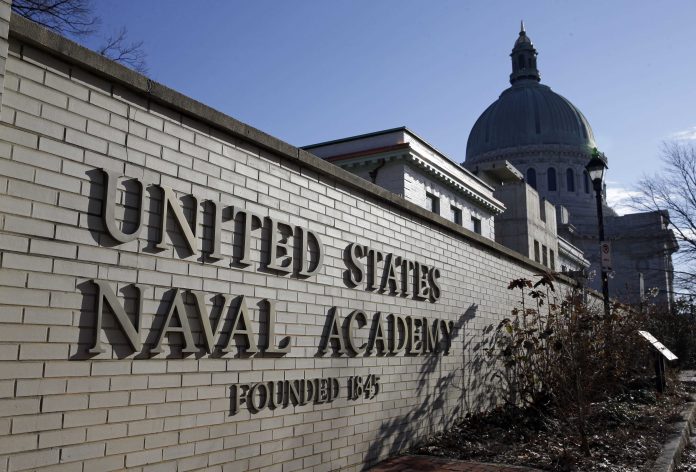
By LEA SKENE
Associated Press
BALTIMORE (AP) — A federal judge on Friday ruled that the U.S. Naval Academy can continue considering race in its admissions process, ruling that military cohesion and other national security factors mean the officer training school should not be subjected to the same standards as civilian universities.
During a two-week bench trial in September, attorneys for the school argued that prioritizing diversity in the military makes it stronger, more effective and more widely respected.
The group behind the case, Students for Fair Admissions, also brought the lawsuit challenging affirmative action that resulted in a landmark U.S. Supreme Court ruling last year. The high court’s conservative majority broadly prohibited the consideration of race and ethnicity in college admissions, ending a longstanding practice meant to boost opportunities for historically marginalized groups and sending shockwaves through higher education. But it carved out a potential exemption for military academies, suggesting that national security interests could affect the legal analysis.
Students for Fair Admissions later sued the Annapolis-based Naval Academy challenging the exemption.
But Judge Richard Bennett rejected their arguments in a lengthy opinion released Friday. A George W. Bush appointee who served for over 20 years in the U.S. Army Reserve and the Maryland National Guard, Bennett wrote that the school had “established a compelling national security interest in a diverse officer corps.”
“Specifically, the Academy has tied its use of race to the realization of an officer corps that represents the country it protects and the people it leads,” he wrote. “The Academy has proven that this national security interest is indeed measurable and that its admissions program is narrowly tailored to meet that interest.”
Bennett noted that demographics are a minor factor in Naval Academy admissions — no one is admitted solely on the basis of race. He also noted that Students for Fair Admissions includes among its membership “four individuals whose prior applications to the U.S. Naval Academy were denied.”
In a statement Friday, President Edward Blum said the group would appeal the decision.
“It is our hope that the U.S. military academies ultimately will be compelled to follow the Supreme Court’s prohibition of race in college admissions,” he said.
Attorneys for the group argued during trial that prioritizing minority candidates is unfair to qualified white applicants and that cohesion should arise from other factors such as training and command structure.
The group also sued West Point last year, but the Naval Academy case was the first case to go to trial.
Witness testimony included accounts from current and former high-ranking military officials who expressed varying opinions on how race affects the experiences of service members and the organization as a whole. Some argued that performance standards alone should be used to evaluate candidates while others emphasized the importance of fostering diversity.
The court also heard from historians who described the military’s fraught history of racial tension, which on some occasions erupted into violence and jeopardized its wartime readiness.
“The United States military has long made the judgment that developing and maintaining a fighting force that is qualified and demographically diverse at all levels is critical for mission effectiveness,” Bennet wrote in his ruling.
Currently, the Naval Academy’s admissions process considers many factors, including grades, extracurricular activities, life experience and socioeconomic status, according to court testimony. Race often plays no role in the process, but sometimes it comes under consideration in a “limited fashion,” attorneys for the academy wrote in court papers.



















